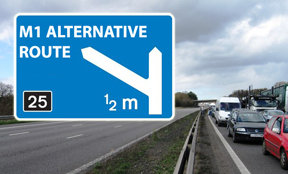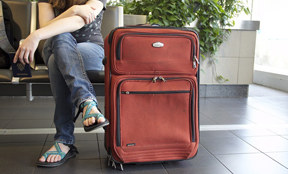
With the rate of viruses such as chicken pox increasing in a post-pandemic UK, many more children are being exposed to the highly contagious disease – but will kids infected with the condition be allowed on flights for family holidays or other trips?
Here travel journalist and expert Pete Barden takes a look at what popular airlines flying from the UK say about whether or not passengers who have chicken pox will be able to board their flights.
-
TABLE OF CONTENTS
-
Can airlines stop people flying if they have chicken pox?
-
What do airlines say about flying with chicken pox?
-
Can you get a refund if chicken pox means you can't fly?
-
Who can catch chicken pox?
-
When is chicken pox contagious?
-
How is chicken pox spread?
-
How can I ease the symptoms of chicken pox?
-
Can I prevent my child getting chicken pox with a vaccine?
 Find out if you or your child can fly with chicken pox
(Credit: Pixabay)
Find out if you or your child can fly with chicken pox
(Credit: Pixabay)
Can airlines stop people flying if they have chicken pox?
The aircraft cabin is a meticulously regulated setting, with a widely accepted notion that the risk of transmitting infectious diseases is minimal during flights. Nevertheless, given the highly contagious nature of chicken pox, transmission between passengers sharing the same area is possible, primarily through coughing, sneezing, or physical contact.
Airlines retain the right to refuse travel if their staff suspect a passenger is unwell or poses a risk of passing on diseases to fellow passengers. This policy extends to individuals who have recuperated from an infectious ailment but still exhibit signs of being unwell, such as the lingering red spots typical of chicken pox.
To pre-emptively address concerns about potential boarding denials, it is advisable to carry a letter from your GP confirming that you are no longer infectious. Additionally, reaching out to your airline in advance is crucial, as each airline maintains distinct policies regarding such matters. See our airline-by-airline guide below.
If you or a child has already had chicken pox but have similar blisters, you could be suffering from shingles - we have information on this condition here.
Our information is for guidance, only.
Subscribe for free motoring and travel news here - support independent journalism
What do airlines say about flying with chicken pox?
Here are what popular airlines flying from the UK say about allowing children and adults with chicken pox fly on their planes...
Air New Zealand
Any passengers, child or adult, will need medical clearance from the airline's Aviation Medical team.
British Airways
Travel is permitted 6 days after final crop of spots providing all have crusted/scabbed over and the passenger feels well and has no fever. A letter from your Doctor confirming you are no longer contagious will also be required.
easyJet
Passengers will be permitted to travel 7 days after the appearance of the last new spot.
Jet2
Jet2 requires that at least 7 days must have passed since the first spots appeared, with no more forming, before it is able to consider carrying anyone with the virus. Jet2 will also need a Fit to Fly certificate from your doctor to confirm this.
Norwegian
If symptoms of chicken pox are visible at the time of departure, passengers must provide a medical certificate which states their condition is not infectious.
Ryanair
When it comes to chicken pox, passengers can be accepted for travel 7 days after the appearance of the last new spot.
TUI
Like many airlines, TUI says Chicken pox sufferers can fly 7 days after the last new spot appears.
Virgin Atlantic
Virgin Atlantic says the passenger affected by chicken pox can fly "7 days after the last crop of spots providing the spots have crusted/scabbed over and the passenger feels well and has no fever".
Wizz Air
If you have a contagious disease - such as chicken pox - you will need a medical certificate confirming your fitness to travel by air. This must be issued within 6 days of your flight’s departure date.
Subscribe for free motoring and travel news
Can I get my money back if chicken pox means we can't fly?
The airline you are travelling with will not need to refund you if you, or one of your party cannot fly due to illness, such as chicken pox.
However, if you have travel insurance with cancellation cover, it is likely that you will be able to claim the money back for the flight, or entire trip if it is a package holiday.
You must mention any pre-existing conditions when buying travel insurance, otherwise your claim is likely to to be refused.
What is chicken pox or chickenpox as some call it?
Chicken pox causes an itchy, spotty rash and typically is most prevalent in children – but not exclusively.
Who can catch chicken pox?
Most children will catch chicken pox during their infancy – but it can be more unpleasant and harmful for adults who did not have it as a child.
It is largely harmless – aside from unpleasant symptoms, for kids, but can be dangerous to some people, such as pregnant women, new-born babies and people with a weakened immune system.
Typically, people become immune after suffering a bout of chicken pox.
When is chicken pox contagious?
Chicken pox sufferers are contagious 1-2 days before the first spots/blisters appear and then until all the resulting lesions have scabbed or crusted. This is usually around five days after the final spot appears.
How is chicken pox spread?
The infection is spread in the fluid found in blisters and sneezes and coughs of someone who has the infection.
Chicken pox can be caught from:
- Contaminated surfaces
- Contaminated objects
- Touching the blisters caused by chicken pox
- Face-to-face contact with an infected person – this includes having a conversation
- Being in the same area/room as an infected person for 15 minutes or more.
How can I ease the symptoms of chicken pox?
- Use paracetamol to relieve fever and discomfort – use the correct age-appropriate products such as Calpol for children. Do not exceed stated dosage
- Moisturising creams will help ease severe itching
- Do not scratch the skin, tap or pat it instead to help reduce complications.
- Stay hydrated
Is there a vaccine?
There is an vaccine that can prevent children from catching chicken pox and ensuring there is no risk to your holiday, but it is not free to patients in the UK without specific medical need.
Examples of children who would likely be able to get a chickenpox jab on the NHS include siblings of a child with leukaemia, or whose parent is undergoing chemotherapy.
The vaccine can be obtained for children at a number of private travel clinics, but is likely to cost you around £140 for the two jabs at a pharmacy such as Boots the Chemist.
Essential travel content 2022
Take a look at more of our top travel-related news and guides here...
-
Do I need six or three months on my passport for Spain, France and other EU countries?
-
Do I need an International driving permit for France, Spain and other EU countries?
-
Can I catch monkey pox on a plane?
-
Who can sign my passport photo... can teaching assistants sign for kids?
-
Do I need a new passport now I have put on weight, dyed hair, gone bald etc?
-
How much do passports cost now we've left the EU?
-
Can I change a name on a plane ticket and how much will it be?
-
How much are fast-track security lanes at UK airports and how to book them
-
Can I fly with a broken leg or other bone?
-
How much are extra legroom seats on your flight - revealed here
-
Where can I charge an electric car at UK airports?
-
Are there any free drop-off points at UK airports?
-
What airlines have defibrillators on their planes
-
What does SSSS on your boarding card mean and should you be worried?
-
What help is there for travellers with autism at UK airports?
-
Do I need a V103 certificate to drive my car abroad?
-
Do I need to get a new passport if I move home?
Author: Pete Barden
Twitter: @pete_barden
Pete Barden is a qualified journalist who has written and produced for publications including The Sun (thesun.co.uk), New Statesman Media Group, Whatcar? (Whatcar.com) Stuff Magazine (Stuff.tv), Fastcar Magazine (Fastcar.co.uk), Maxim Magazine and UK broadcast stations within the Heart network (Formerly GCAP). Pete specialises in motoring and travel content, along with news and production roles. You can find out more about Pete Barden on LinkedIn.











